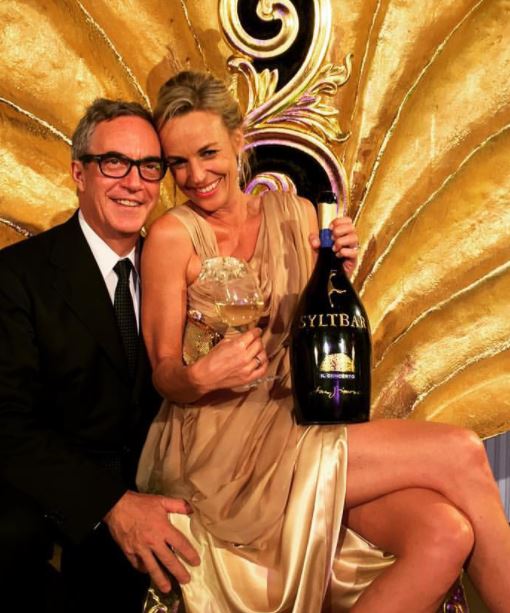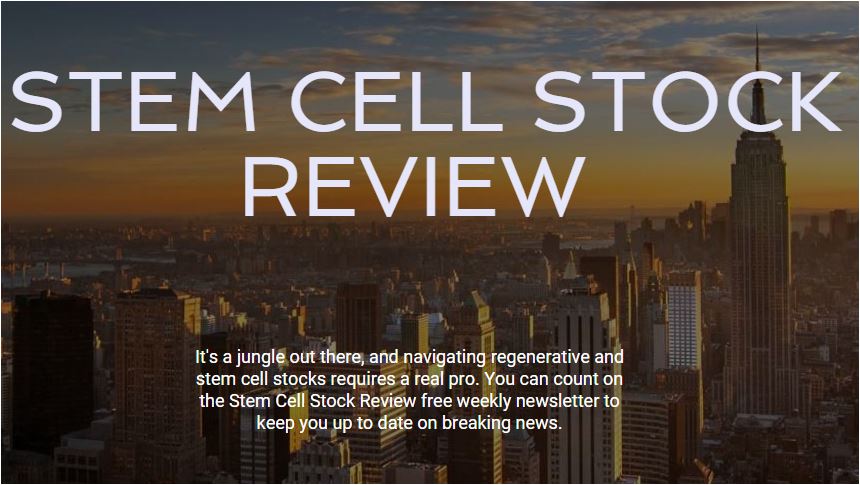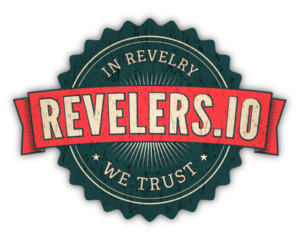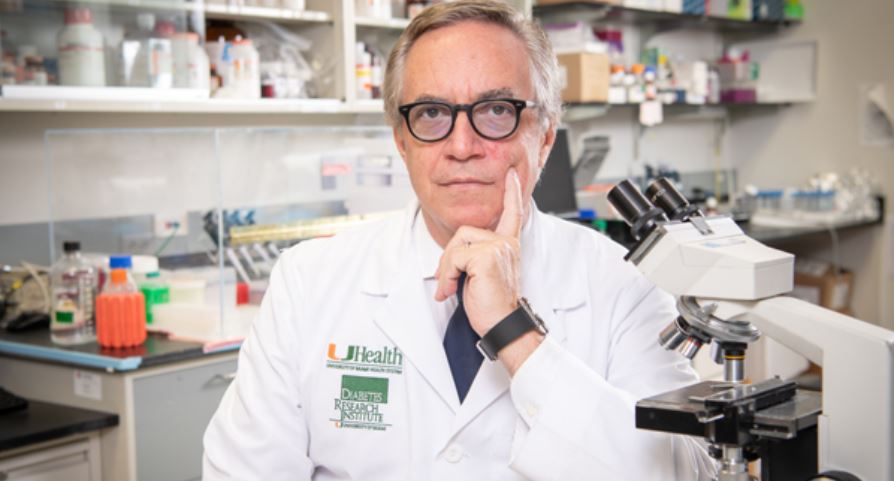Gentlemen Start Your Research Engines! Be Fast and Be Early. We Could be Looking at a “Beam Me Up Scotty” Type Vector – Pulling All Stem Cell Related Covid Stocks Higher.
Let’s Call This Stem Cell Monday. Expect adjectives like ‘ground-breaking,’ and ‘medical breakthrough’ to be bandied about and attract the attention of the Robinhood traders in the months ahead.
Big News out of the University of Miami.

The paper describes findings from 24 patients hospitalized at University of Miami Tower or Jackson Memorial Hospital with COVID-19 who developed severe acute respiratory distress syndrome. Each received two infusions given days apart of either mesenchymal stem cells or placebo.
Researchers found the treatment was safe, with no infusion-related serious adverse events.
Patient survival at one month was 91% in the stem cell treated group versus 42% in the control group. Among patients younger than 85 years old, 100% of those treated with mesenchymal stem cells survived at one month.

The study’s senior author, Dr. Camillo Ricordi, director of UM’s Diabetes Research Institute and Cell Transplant Center, told the Miami Herald on Wednesday that “the study clearly indicates that these stem cells decrease the hyperimmune, hyperinflammatory response associated with severe cases of COVID-19.”
Ricordi said that the results of patient survival rate — 100% for those younger than 85 — and faster time to recovery “are unprecedented and unmatched by any other treatment so far reported.”
University of Miami leads groundbreaking trial for COVID-19 treatment
January’s Stem Cells Translational Medicine Journal
Follow our Covid-Stem-Cell Discoveries Here. We’ll create a new stem cell section on the web site.

We launched a Stem Cell Stock Review and Stem Cell Investor Conference back five years ago, after getting some midnight ‘epiphany’ that the whole group was about to turn. We felt we could make millions being early. The whole group had never gotten the respect (funding from Wall Street) that the biotech sector enjoyed and you could create a long list of companies trading under $5.00 and/or under $50 million.
Well, we were wrong and abandoned the effort a year later. But five years have since passed and we-are-back! We’ll spend the day looking for sympathy plays.
Currently we have a number of these plays on the Watch List.
Citius Pharma (CTXR) $1.13. Year High $1.97 Live Quote
Organicell (BPSR) $0.12. Year High $0.52 Live Quote
Athersys (ATHX) $1.96. Year High $4.39 Live Quote
Other names we follow:
Mesoblast (MESO) $8.66. Year High $21 Live Quote
Lineage Cell Thera (LCTX) $1.98. Year High $2.16 Live Quote
Brainstorm Therapeutics (BCLI) $4.69. Year High $17.90 Live Quote
Memory Lane, awe..

Disclaimer. Citius/NoveCite. NoveCite’s mesenchymal stem cell therapy product is derived from a human induced pluripotent stem cell (iPSC) line generated using a proprietary mRNA-based (non-viral) reprogramming process. The NC- i -MSCs produced from this clonal technique are differentiated from human donor-derived MSCs (bone marrow, placenta, umbilical cord, adipose tissue, or dental pulp) by providing genetic homogeneity. In in vitro studies, i -MSCs exhibit superior potency and high cell viability. i -MSCs secrete immunomodulatory proteins that may reduce or prevent pulmonary symptoms associated with acute respiratory distress syndrome (ARDS) in patients with COVID-19. The NoveCite i -MSC is an allogeneic (unrelated donor) mesenchymal stem-cell product manufactured by expanding material from a master cell bank.
First generation (human donor-derived) MSCs are isolated from donated tissue followed by culture expansion. Since only a relatively small number of cells are isolated from each donation, first generation MSCs are increased by growing the cells in culture. Unfortunately, these type of MSCs start to lose potency, and ultimately become senescent. Each donation produces a limited number of MSCs, so a continuous supply of new donors is needed to produce commercial scale. The number and quality of MSCs that can be isolated from different donors can vary substantially. CTXR is a client, please see reports for disclaimer and disclosure details.












